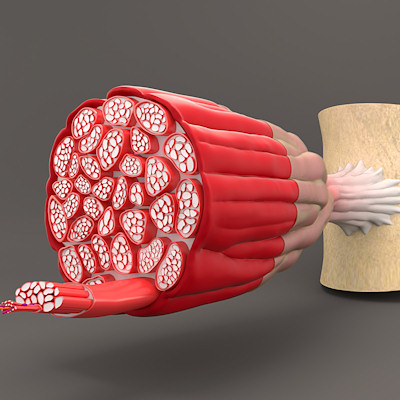June 22, 2023 -- The U.S. Food and Drug Administration (FDA) on Thursday approved Elevidys, the first gene therapy for the treatment of pediatric patients 4 through 5 years of age with Duchenne muscular dystrophy (DMD).
The accelerated approval, granted to Sarepta Therapeutics, came with the condition that the patients have a confirmed mutation in the DMD gene and do not have a preexisting medical reason preventing treatment with the therapy.
"Today's approval addresses an urgent unmet medical need and is an important advancement in the treatment of Duchenne muscular dystrophy, a devastating condition with limited treatment options that leads to a progressive deterioration of an individual's health over time," Dr. Peter Marks, director of the FDA's Center for Biologics Evaluation and Research, said in a statement.
Duchenne muscular dystrophy is a rare and serious genetic condition that worsens over time, leading to weakness and wasting away of the body's muscles. The disease occurs due to a defective gene that results in absence of dystrophin, a protein that helps keep the body's muscle cells intact.
As a result of the genetic defect, individuals with DMD may have symptoms such as trouble walking and running, falling frequently, fatigue, learning disabilities/difficulties, heart issues, and breathing problems.
Elevidys is a recombinant gene therapy designed to deliver a gene into the body that leads to production of Elevidys micro-dystrophin, a shortened protein (138 kDa, compared to the 427 kDa dystrophin protein of normal muscle cells) that contains selected domains of the dystrophin protein present in normal muscle cells. The product is administered as a single intravenous dose.
The FDA granted approval was based on an evaluation of data submitted by Sarepta Therapeutics. Data obtained from a randomized clinical trial established that Elevidys increased the expression of the Elevidys micro-dystrophin protein observed in Elevidys-treated individuals 4 to 5 years of age with DMD.
The FDA concluded that the data submitted by the applicant demonstrated that an increase in the expression of Elevidys micro-dystrophin is reasonably likely to predict clinical benefit in individuals 4 to 5 years of age with DMD; these are individuals who do not have significant preexisting antibody titers against the AAV rh74 vector or have other contraindications based on the inclusion criteria of the clinical trials.
Clinical benefit of Elevidys, including improved motor function, has not been established, the FDA noted. As a condition of approval, the agency is requiring the company to complete a clinical study to confirm the drug's clinical benefit.
Copyright © 2023 scienceboard.net







